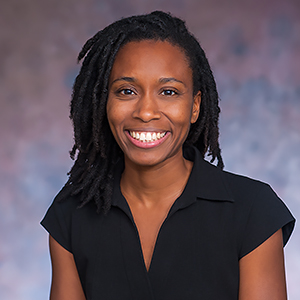Hello, I am Mindelyn Anderson, PhD, Founder + Principal of Mirror Group LLC, and Equitable Evaluation Initiative Teaching Case Facilitator.

In my evaluation consultant work, I am always on the hunt for learning and development activities and approaches to engage across funders, grantees, and communities. With that pursuit in mind, I find the Teaching Case a compelling approach to promote shared accountability, learning, and reflection for partners in philanthropy.
Rad Resource: Teaching Case, Distant Cousin of the Case Study
The Teaching Case is an account of real life events written in rich detail as experienced by those involved. It is intentionally absent of analysis so the audience can consider the universe of alternate choices and their implications for evaluation. For evaluators who navigate imbalanced power dynamics in the context of their work, the Teaching Case is ripe for opportunities to spark “sticky” dialogue at retreats and convenings. Curious? The Evaluation Roundtable at the Center for Evaluation Innovation has more than a dozen teaching cases about evaluation in philanthropy that you can explore.
Cool Trick: Why I Love the Teaching Case?
Have you ever discovered a new methodology and immediately wondered, where have you been my entire evaluation life? No? Well, that was my experience with the Teaching Case. To read a page-turning document that allows you to see yourself, team, organization, collaborators and community from each other’s’ perspectives is the ultimate 360 Review for evaluation partners.
Hot Tips: 3 Ways to Activate the Teaching Case
- Teaching cases are not solo endeavors nor are they for the faint of heart. You will need full participation and commitment to the process from colleagues throughout your ecosystem. Partners who embrace the learning aspects of evaluation are integral to develop and implement an engaging Teaching Case.
- Call on a colleague with an ethnography background and experience in nonprofits and foundations to author the Teaching Case. The fine balance to empathize with all Teaching Case “characters”, yet detach from the urge to analyze what occurred, requires a mix of methodological and practical expertise beyond evaluation alone.
- Fierro, Schwartz, and Smart remind us that when evaluation and facilitation play well together, our work is enhanced. Evaluators, put on your best facilitation hat with the support of a coach. Engage colleagues in activities that promote factual reflection, eye-opening learning, intentional planning, and innovative action surfaced from actual initiatives and events that make everyone think, what has been lifted up for me that I can apply to shift my practice?
Lessons Learned:
We used the Teaching Case pilot to invite grantmaking colleagues to consider what is necessary and realistic to conceptualize, implement, and utilize the equitable evaluation principles in a foundation initiative. Join the transformation along with EEI and in the discussion board below to imagine other ways the Teaching Case can promote evaluation accountability and learning in pursuit of justice and equity.
The American Evaluation Association is celebrating Nonprofits and Foundations Topical Interest Group (NPFTIG) Week. The contributions all this week to aea365 come from our NPFTIG members. Do you have questions, concerns, kudos, or content to extend this aea365 contribution? Please add them in the comments section for this post on the aea365 webpage so that we may enrich our community of practice. Would you like to submit an aea365 Tip? Please send a note of interest to aea365@eval.org. aea365 is sponsored by the American Evaluation Association and provides a Tip-a-Day by and for evaluators.
